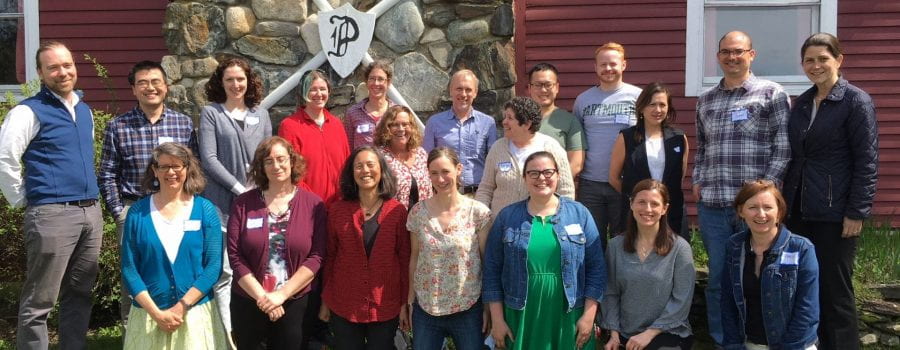The Dartmouth Toxic Metals Superfund Research Program includes scientists, postdoctoral and graduate students, and technical and support staff from Dartmouth College and the Geisel School of Medicine, in Hanover, New Hampshire. We also collaborate with researchers at other universities, local, state, federal government agencies and public health organizations.
Our Program investigates the ways arsenic and mercury in the environment affect ecosystems and human health. As part of our work, we provide students with opportunities to participate on interdisciplinary research teams, and we communicate our research results to local, state and federal agencies, and community-based public health organizations. Through the partnerships established between our investigators and our stakeholders, we also create opportunities to engage local communities in our research.
Research
The Dartmouth Toxic Metals Superfund Research Program currently focuses on arsenic and mercury, number one and three on the Agency for Toxic Substances and Disease Registry and the U.S. Environmental Protection Agency priority list of hazardous substances. Arsenic and mercury are commonly found in Superfund sites around the U.S., as well as other areas that result in exposures to certain communities. All of our research projects are examining these two metals in detail and our results are directly relevant to the U.S. Environmental Protection Agency’s Superfund program, as well as the Agency for Toxic Substances and Disease Registry.
In particular, we want to know:
• the natural and man-made sources of arsenic and mercury in the environment and their relative contribution to human exposure; • how arsenic and mercury move through ecosystems; • precisely how arsenic affects the cellular processes that are known to contribute to cancer, lung disease and heart disease; • whether arsenic at levels found in drinking water and food in the U.S. raises the risk of cancer and other diseases in humans; • how methylmercury is taken up in aquatic ecosystems and ends up in the fish most commonly consumed by humans; • how best to communicate risks concerning toxic metals to affected communities; • how scientific research would best inform public policy on mercury and arsenic.
Research Team:
Our Research Team includes individuals who specialize in more than two dozen fields of study. Our principal areas of expertise include:
• pharmacology • toxicology • analytical chemistry • molecular biology • aquatic ecology • human epidemiology
Our Center includes four Research Projects and five Support Cores. Project Leaders are: Celia Y. Chen, Ph.D., Mary Lou Guerinot, Ph.D., Margaret R. Karagas, Ph.D., and Bruce A. Stanton, Ph.D. Our Research Team also includes Trainees, Research Scientists, and support staff.
